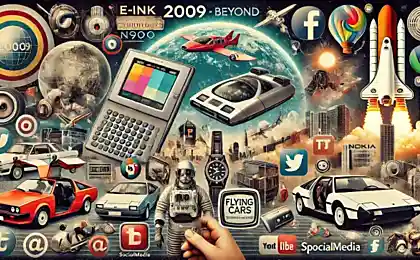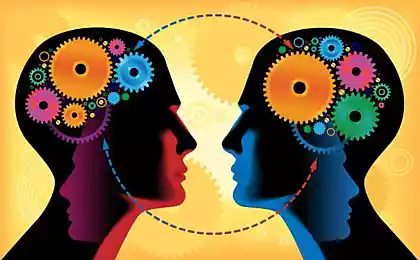471
Strangers from the future— why we procrastinate

Why do we perceive ourselves in the future as strangers and allow ourselves to procrastinate? How to get people to think about their own old age advance? "Theory and practice" publishes the translation of the article by Alisa Opar, which often calls himself "the Future Alice" to be in time with deadlines and homework.
The British philosopher Derek Concerning in his book "Reason and identity" supported strictly reductionist vision of identity: it does not exist — at least in the sense that we usually mean. We, the people, said Concerning not established a solid identity that moves in time, but a chain of successive "selves", related but different. So do not judge strictly of the boy who starts Smoking, even though he knows that may suffer from this habit decades later: "This boy is not identificeret yourself with a future, writes Concerning. — His attitude to the future himself in some sense like his attitude to other people."
The opinion Concerning it was controversial even among philosophers. But psychologists have begun to realize that using this approach can accurately describe our relationship to decision-making: it turns out that we see ourselves in the future as strangers. And although we inevitably divide "their" fate, is still the lot of people we will become in a decade, a quarter of a century or more, are unknown to us. This hinders our ability to make the right choice from them — that is, of course, from our name. Oh, those bright, shiny "new year resolution"! If you feel fully justified in breaking them, is because you think that these promises were given by someone else.
"This is a strange misconception, says Hal Hershfeld, associate Professor Ternovskoy school of business at new York University. But on a psychological and emotional level we really believe that we in the future is a different person."
"On a psychological and emotional level we really believe that we in the future is a different person"
Hershfeld colleagues have studied changes in brain activity that occurred when people imagined the future or think about yourself in the present. They are located in two regions — the medial prefrontal area and the anterior cingulate cortex. These areas are more active when a subject thinks about himself than when he thinks about anyone else. Scientists have found that activity was stronger when participants thought about themselves today, rather than about yourself in the future. Their future identity "feel" like someone else. When they described themselves in the future, their neural activity was almost similar to that which occurred when they describe, say, Matt Damon or Natalie Portman. Those whose brain activity was more varied when they talked about themselves in the future are more likely to prefer small term loans than long-term financial obligations.
Emily Pronin, a psychologist from Princeton, came to similar conclusions in their study. Pronin and her team told the students that they take part in an experiment on disgust, which requires drinking a mixture of ketchup and soy sauce. The students explained that the more they can drink, the greater the benefit it will bring to science. Those students who said to drink this nasty mixture will have the same day, agreed to two tablespoons. Those participants who offered to do so in the future (next semester), and those who proposed to determine the number of mixtures for the other participating students agreed on average at half a Cup. We think of ourselves in the future, says Pronin, about others in the third person.
The gap between our current "a" and those in another point in time, has a real impact on how we make decisions. We can choose procrastination and let some other version of yourself to deal with problems and chores. Or, as in the case of the example Concerning — Smoking boy, we can focus on the version of self that derives pleasure, and ignore the one that pays for it the corresponding price. But if procrastination or irresponsibility can derive from a weak connection with his future self, and strengthening this connection, it may be an effective tool. This is exactly the tactic used by some researchers. Anna Wilson, a psychologist at the University of Wilfrid Laurier in Canada, manipulate the perception of time, showing participants graphs, lined for future events, such as the deadline for the submission of assignments, which seemed either very close or very distant. "The use of longer schedules makes people more worried about themselves in the future," says Wilson. That, in turn, motivated students to complete assignments early and protect yourself at the end of the semester from horror to scribble them at the last minute.
"If procrastination can occur from a weak connection with his future self, strengthening this connection may be an effective tool"
Hershfeld used a more sophisticated approach. Inspired by the use of pictures, which lead to charitable donations, he and his colleagues gathered the participants of the experiment in the virtual reality room and asked them to look in the mirror. Subjects saw either a real or aged using computer graphics. When they left the room, they were asked how they would spend a thousand dollars on his pension. Those who showed the aged images were ready to put into a pension account two times more than those who saw themselves as ordinary.
Of course, our perception of ourselves in the future is not necessarily negative: as we think about the future as anybody else's, our own decisions reflect how we relate to other people. Where Smoking boy from the experiment Concerning endanger the health of yourself in the future, others may act differently. "The fact that we continually make sacrifices for others, says Hershfeld, in relationships, in marriage." The good news about this distinction itself, and itself in the future — that is another reason to practice kindness to others. One of them could be you.
источник:theoryandpractice.ru
Source: /users/1077























